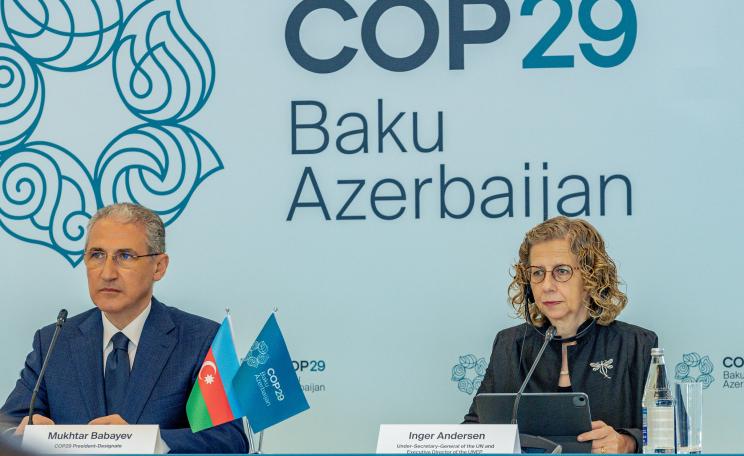Strong climate targets must be a priority for all, and we want Portugal to lead by example.
Young climate activists are bringing a new case to court which would oblige the government in Portugal to align its greenhouse gas emission reduction targets with the objectives of the Paris Agreement, and to define long-term plans for carbon neutrality.
The case is being brought by Último Recurso, a Portuguese youth-led association, and has been joined by activist Cláudia Duarte Agostinho and three other young applicants from the famous case Duarte Agostinho and Others v. Portugal and 32 Other States which resulted in a landmark ruling at the European Court of Human Rights (ECtHR).
Duarte Agostinho, a claimant in Duarte Agostinho and Others v. Portugal and 32 Other States, said: “Last year, the European Court of Human Rights said that we must take our case against the Portuguese government's weak climate targets to the national courts.
Rulings
"That's exactly why we are teaming up with Último Recurso today. We are as determined as ever to continue our fight for a liveable future.”
Mariana Gomes, founder of Último Recurso, said: "We are pleased to join forces with this courageous group that has shown great commitment to stronger climate action. Their determination reflects the same values that drive Último Recurso: the urgent need to hold wrongdoers accountable for the damage they cause to our future.
"Strong climate targets must be a priority for all, and we want Portugal to lead by example in tackling this crisis head-on."
Gerry Liston, a senior lawyer, Global Legal Action Network, said: “By joining forces with Último Recurso, this group are beginning a new chapter in their now eight year legal battle for urgent climate action. Their determination is heroic and should inspire others to join the fight for a habitable planet.”
A year ago today the ECtHR issued rulings in three climate cases (Duarte Agostinho and Others v. Portugal and 32 Other States, Verein KlimaSeniorinnen Schweiz and Others v. Switzerland and Carême v. France).
Heatwaves
The court decided in favour of the KlimaSeniorinnnen claimants. However, it also held that the Duarte Agostinho case was not ‘admissible’. One reason given was that the applicants did not take their case to the Portuguese courts first. A second reason was that the other 31 states did not have extraterritorial obligations to the applicants.
Cláudia Duarte Agostinho and three of her fellow youth-applicants will now join Último Recurso as it aims to achieve a legal precedent in Portugal for raising the ambition of Portugal’s national targets to reduce climate emissions.
Portugal has committed to reducing its GHG emissions by 55 per cent by 2030, compared to 2005, as established in the Lei de Bases do Clima (LBC), the national framework on climate law, and in the revision of the National Energy and Climate Plan for 2030.
However, research by Climate Analytics has shown that this target is insufficient. If all countries set targets similar to Portugal's, by 2100 the planet would be between 2ºC and 3ºC warmer.
Último Recurso also hopes that legal proceedings will help to initiate a debate in Portugal on the appropriate targets for reducing climate emissions, in order to design climate policies that are more ethical, fair and committed to present and future generations.
A 2021 survey on climate anxiety in young people revealed that Portugal was the most worried among the wealthier nations. Portugal could experience as many as ten heatwaves each year by the end of the 21st century.
Último Recurso is a Portuguese NGO that uses climate law and litigation to hold the main offenders of the climate crisis accountable, and believes in the power of law to reduce climate emissions, defend the most affected communities and prevent environmental damage.
This Author
Brendan Montague is editor of The Ecologist.







